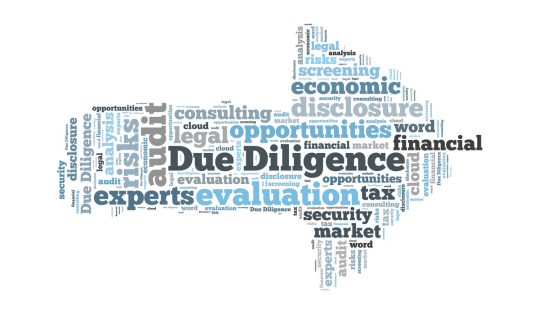
What is due diligence?
Due diligence is when an investigation is carried out into aspects of a company, in preparation for sale of the business.
These investigations are carried out by owners or management of the interested business. More often than not a third party of financial and/or legal advisers are involved in the process.
Proactive owners carry out their own investigation to assist with the sale process.
The process can be overwhelming and time consuming. However, there are guides and advice available online and the CVW Accounting team can also help with questions.
If purchasing a business or looking to sell your business here is useful information about what due diligence involves, questions to ask and points to consider.
Why due diligence is valuable?
Firstly, a due diligence investigation provides a detailed picture of the business. You will be well-equipped to make an informed decision about the purchase. Plus, you will know the value of the business, your risk and what investment of time and or funds may be required in the future.
Secondly, the information gathered during an investigation is confidential. This means the seller will request signatures on a non-disclosure agreement before releasing information.
Thirdly, business owners selling their business, carrying out your own due diligence prior to sale ensures the best possible outcome.
Lastly, a thorough seller-investigation provides an accurate value of the business. This will assist with negotiations, buyer questions, reactions and will confirming all appropriate and necessary documentation is available.
What does due diligence involve?
An investigation looks closely at all aspects of the business for sale. From business operations, financial performance and legal and tax compliance to customer contracts, intellectual property and assets.
Common categories include:
- Business information – i.e. formation / incorporation documents; bylaws or operating agreements; agreements between owners of the equity interests; up-to-date board minutes; notices for equity owner and board meetings; ledgers; equity certificates
- Financial records – i.e. balance sheets; income statements; annual reports; audit reports
- Contract details – i.e. customer contracts; supply agreements; loan and other financing agreements; insurance policies; employment contracts and consulting agreements; marketing and advertising agreements
- Regulatory matters and litigation – i.e. permits and orders; copies of pleadings in pending litigation; copies of threatened litigation or notices of violation of any laws
- Employment and staff matters – i.e. information regarding employees, wages, benefit plans, bonus compensation, vacation, sick time, and any benefits and policies
- Intellectual property – i.e. documentation supporting any copyrights, trademarks, trade names, or patents owned by the selling company or any of its key employees related to the business
The nitty gritty details and time it takes to produce this information can seem overwhelming. At the end of the day this process assists your understanding of the business and your negotiating power.
If you have any questions please call CVW Accounting on 9219 1300.
Published May 2017. CVW Accounting blogs are regularly reviewed and updated . Last reviewed and updated July 2023.
